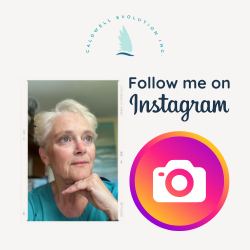What you do is infinitely more important than how you do it. Efficiency is still important, but it is useless unless applied to the right things.
People affected by disorganization often complain they don’t know what to do. This breaks down into what I call the BIG WHAT and the LITTLE WHAT. Big or little, if you don’t know where you are going, it is almost impossible to get there.
The Big What
The Big What refers to life purpose, larger goals, or one’s mission in life. Each of us has various domains of interest, activity and priority in our lives. For example, career/vocation, family, relationships, spirituality, health/fitness and financial are all domains or components of our lives. Different authors identify and separate these life components differently, however the basic premise is the same. How important each domain is to an individual, how much time, energy, and other resources they will commit, varies according to the season of our life. When the components are imbalanced, an individual may feel unproductive. When someone says “I don’t know what to do”, and they mean they don’t know how to prioritize their limited free time, they are talking about the Big What.
Clarifying the Big What requires having a vision for your life. Do you have a sense of who you are are what your values are? Do you know what your priorities are? How do you want to show up in this world?
Behind the Big What is why we do what we do; our values determine our Why. The Japanese call this the Ikigai, the reason to get out of bed in the morning. Gay Hendricks calls it working in our Zone of Genius. Do you exercise because health is important? Did you buy a bike to spend time with your children and get some exercise? Do you work in a book store because reading is your passion?
Having a clear understanding of your Why will help you get to your vision, or life goals, even when the going gets tough. Creating a vision board or mind movie are tools may people use to help clients clarify and remember their goals and values. If you are really struggling with some existential questions (get married or not) you may need the support from a professional such as a minister, rabbi, life coach or similar individual trained in guiding clients through the larger existential issues of life.
The Little What
The Little What refers to either a process or daily tasks. It more often has to do with technical competence in a task or project or sequencing the steps. The output will be concrete.
Have you set clear goals? Are the goals written down? Written goals are more likely to become a reality. Are the goals meaningful and relating to the overall vision for their life or, at least one domain of it? Can you identify exactly what the output of your project looks like? SMART goals, (Specific, Measurable, Attainable, Realistic, Time Limited) are still one of the best ways to identify one’s Little What.
If you really struggle with disorganization, you may require additional support to identify clearly, succinctly, and specifically what you want the result of a process to look like. This clarity often makes the steps to get there also more visible. With a clear destination, choosing a path becomes more tangible and therefore, more attainable. Creative visualization or employing a theme might also clarify lower and higher priorities.



Leave a Reply